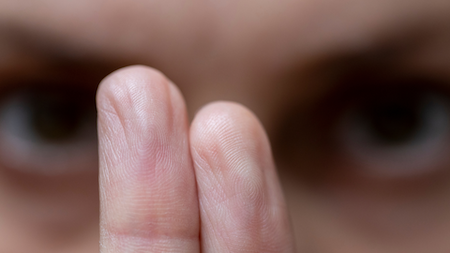How I Overcame Depression With EMDR

About Me
I am a 30-year-old living and working in Mexico City. I’ve been living in this city for 10 years now; I come from a tiny town in the southeast of Mexico, near the Gulf. I want to share my experience with depression and how EMDR helped me. And as far as I remember, I’ve been dealing with depression and anxiety for the longest time. I remember feeling like I wanted to die at the young age of 8.
Beginnings of Depression
Ever since I remember, I have felt like something was wrong with me, my brain, and how much I felt. Depression is prevalent in my family. Although it never had a name, it was apparent in the way my grandmother, great grandmother, and some women in my family tended to “feel a lot.” Unfortunately, my great uncle felt too much and ultimately took his own life.
When I turned 18, I moved away from home, and all the pain and the feelings I tried hard to numb came rushing in. I started to feel empty, broken, and with zero motivation to move from my bed. I began to get sick with throat infections every month; I binged most nights and then starved myself all day. Skipping school because getting up from bed felt like too much effort, and my grades were super low until I got kicked out of college.
I moved to Mexico City a couple of days before my 20th birthday, looking for a solution to what I felt, thinking that a new city could motivate me enough. I dealt with the worst internal dialogue. After all, I thought I was lazy, ungrateful, constantly tired, and like I was broken because everything felt like a lot.
Dealing With Depression
When I turned 24 and had my son, I cried a lot, did not shower, and felt empty inside. Like I was the carcass of a person walking and performing the way I should and fulfilling all my duties and responsibilities, I felt sad and angry inside. Previously, I would frequently have outbursts whenever I was upset or things were not going as expected. I thought I was crazy.
It wasn’t until one afternoon when I talked to my then-mother-in-law that I confessed that I used to fantasize about jumping through the window when I was tired and frustrated. She looked at me and said that it was not normal and that it sounded a lot like post-partum depression.
Accepting My Condition
“Depression.” Aha, so there was a name for what I was feeling. I was not crazy. I had something called depression. That diagnosis helped me so much because all those things I was feeling, and some behaviors and lack of energy were due to that. There was nothing wrong with me. Rather than broken, I was actually suffering from depression.
Of course, back then, I didn’t know anything about depression and thought that it meant that you cried all the time, and that was not me. I was busy being a mom, so I wasn’t crying all day. But something in me, the part that had been looking for answers, convinced me to follow that ‘clue.’ And so, I booked an appointment with a psychologist and a psychiatrist.
They diagnosed me with postpartum depression and began my medication. But something didn’t sit right with me because I remember feeling like that before I was pregnant.
Failed Treatments
After undergoing a few months of treatment and feeling that I wasn’t making genuine progress, I chose to seek out a different psychiatrist, who diagnosed me with depression, anxiety, ADHD, and TLP. It got tricky; I once took 6 pills daily to manage multiple diagnoses. Upon reading ‘Stop Walking on Eggshells,’ a book about TLP with my mother, we were both confused as the symptoms described bore no resemblance to my own experiences.
I decided to stop taking the meds and change psychologist again. But then, the pandemic hit, and my depression came back, running to me. I once sat on the floor crying, convinced the world and my son would be better without me, and decided to ask for help again. I met my doctor a couple of days later, and after we talked, he diagnosed me with PTSD. Not TLP, PTSD from the abuse. He introduced this method of healing to me: EMDR.
EMDR and trauma healing
Eye Movement Desensitization and Reprocessing (EMDR) is a type of psychotherapy that aims to help people overcome emotional distress and depression caused by traumatic experiences. Experiencing trauma can overwhelm the brain, leading to improper processing of the incident, which is the idea behind it. This can lead to feelings of anxiety, depression, and other emotional problems.
During an EMDR therapy session, the therapist will guide the client to recall the traumatic experience while stimulating their brain’s natural healing processes through eye movements or other forms of bilateral stimulation. One could accomplish this through rapid eye movements, tapping, or audio stimulation.
Some sessions were hard, and some were easier. But delving deep into my mind and correcting the memories that I had not processed correctly through this therapy saved my life. EMDR helps release ‘stuck’ memories that can often times fuel depression. I still use it occasionally to cope with past pain or overwhelming emotions.
Some advice
Depression is common, and it convinces us that we’re alone and that the feeling is permanent. But you’re not alone; there’s nothing wrong with you or your brain. Help is available and reaching out for support is a sign of strength. In my case, I found EMDR immensely helpful to fight off my lingering depression.
Sometimes the first treatment you try won’t “work” for you, and that’s okay. Find another one, try a different one. Remember, depression is a treatable condition, and reaching out for help is the first step to recovery. If you feel like you’ve tried it all, try again; try something different. There is a treatment and a way to bring you back to life that will work for you. Don’t give up. I promise one day, you will know a happiness you didn’t even know existed and was available for you.


Leave a Reply
You must be logged in to post a comment.